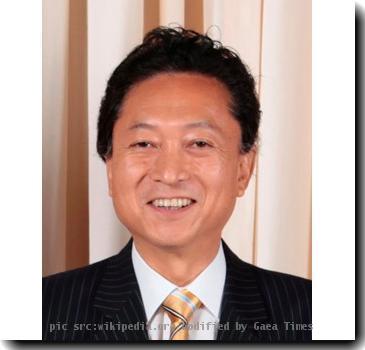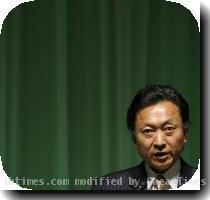Finance chief Kan poised to become Japan’s next leader as ruling party votes to choose chief
By Tomoko A. Hosaka, APThursday, June 3, 2010
Finance chief poised to become Japan’s next leader
TOKYO — Former Finance Minister Naoto Kan, an outspoken politician with activist roots, appeared poised to become Japan’s next prime minister Friday as ruling party members met to pick a successor to the unpopular Yukio Hatoyama, who resigned two days earlier.
Hatoyama’s Cabinet resigned en masse Friday morning, clearing the way for a party vote later in the day to select the Democratic Party of Japan’s new chief, who will almost certainly become prime minister because the Democrats control the more powerful lower house of parliament.
Kan, 63, faces a challenge from little-known Shinji Tarutoko, the 50-year-old chairman of the party’s environmental committee, who has the backing of younger party members and a large faction led by the party’s former No. 2, Ichiro Ozawa, who also stepped down Wednesday.
Kan, known for speaking his mind and standing up to Japan’s powerful bureaucrats, was widely expected to get the job after winning the support of potential rivals, including the foreign minister and transport minister.
Whoever becomes prime minister will face daunting choices in how to lead the world’s second-largest economy, which is burdened with massive public debt, sluggish growth and an aging, shrinking population.
Upper house elections are due next month, and the new leader must quickly revive his party’s tarnished image, battered by Hatoyama’s failure to keep campaign promises. The vote is seen as a referendum on the Democrats’ performance since defeating the long-ruling conservatives in lower house elections in August.
Kan is seen by many analysts as the DPJ’s best hope for restoring confidence in its ability to govern and deliver a viable roadmap for the future.
He is everything Hatoyama was not — decisive, outspoken and a grass-roots populist with common roots. Unlike recent prime ministers, he was not born into an elite political family. Several past prime ministers, including Hatoyama, had fathers or grandfathers who were also prime ministers.
“I grew up in a typical Japanese salaryman’s family,” Kan said at a news conference Thursday. “I’ve had no special connections. If I can take on a major role starting from such an ordinary background, that would be a very positive thing for Japanese politics.”
If chosen, he said Thursday he would “push forward economic, social and fiscal reforms that the people have high expectations for us to tackle.”
Kan gained popularity in 1996 as health minister when he exposed a government cover-up of HIV-tainted blood products that caused thousands of hemophilia patients to contract the virus that causes AIDS. During an E-coli outbreak that hit sprout growers hard, he appeared on national television and ate sprouts to dispel rumors that they were unsafe.
Kan, along with Hatoyama, was one of several original members to launch the party that became the DPJ in September 1996 in a merger with several other small parties.
Dubbed “Irritable Kan” for his occasional fiery outbursts, Kan was the first official to acknowledge last year that Japan was in a period of deflation, and has been critical of the Bank of Japan for not doing enough to fight deflation.
The Democrats are hoping that Wednesday’s resignations by Hatoyama and Ozawa — both of whom were embroiled in political funding scandals — will give it a fresh face for July’s elections.
They appeared to give the DPJ an immediate boost in public opinion. A national telephone poll conducted by The Yomiuri Shimbun, Japan’s biggest newspaper, showed 29 percent support on Wednesday, up 9 points from last weekend.
Some 69 percent of respondents said they approved of the two resignations. It didn’t provide a margin of error, but with 1,090 respondents, the margin of error for this survey would be plus or minus 4 percentage points.
A poor performance in the upper house elections, where half the seats are up for grabs, would not threaten the Democrats’ grip on power because they command a large lower-house majority. But heavy losses would likely force the party to woo new coalition partners to ensure smoother passage of bills.
Associated Press Writers Jay Alabaster, Malcolm Foster and Mari Yamaguchi contributed to this report.
Tags: Asia, East Asia, Japan, Political Resignations, Prices, Public Opinion, Tokyo, Yukio Hatoyama

